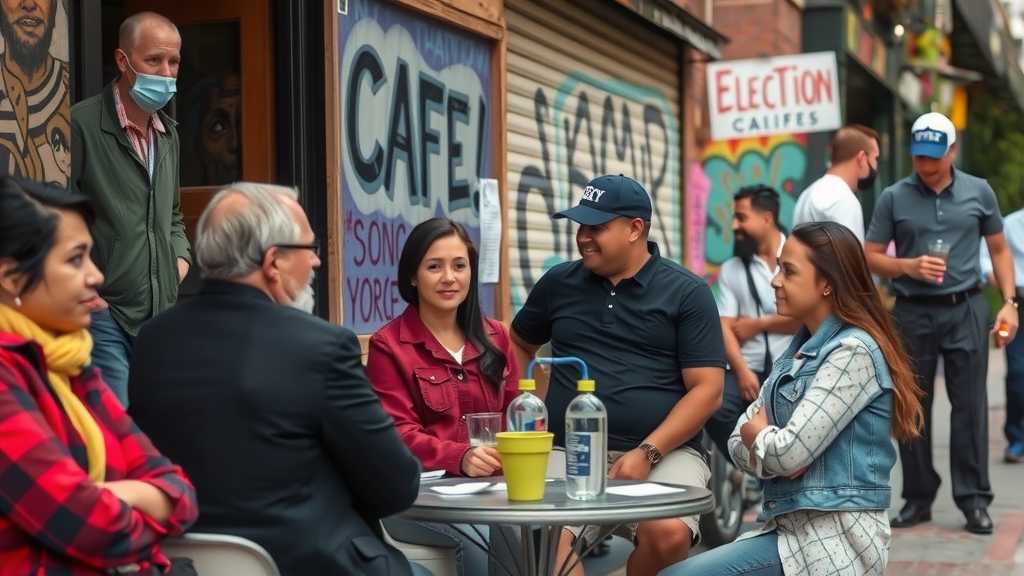Understanding your immigration status: What does it mean for you?
For many Latinos living in the United States without legal status, the journey can be filled with uncertainty and fear. Now, with Trump re-election, it is crucial to understand what your immigration status means in order to make informed decisions for your future. Legal terminology can be daunting, but it’s crucial to grasp the basics to navigate your options more effectively. Whether you’ve crossed the border seeking a better life, overstayed a visa, or have another situation, knowing your rights and what pathways could lead to lawful residency is your first step toward achieving your dreams.

What legal options are available for you?
There are various pathways that could potentially lead to legal status for immigrants in the U.S. Here’s a simplified overview of the most common ones:
Family-based immigration
If you have family members who are U.S. citizens or lawful permanent residents, they might be able to sponsor you for a green card. This system prioritizes immediate relatives, such as spouses, children, and parents. However, keep in mind there are strict requirements and long waiting periods depending on the family relationship.
Employment-based immigration
Another option is through employment. If you are in a profession that is in demand, your employer might help you obtain a work visa. Some employment visas can lead to permanent residency. However, this often requires both you and your employer to meet specific criteria.
Asylum seekers and refugees
Have you faced persecution in your home country because of your race, religion, nationality, or political beliefs? If so, you may qualify for asylum. The application process can be complex and must be done within one year of your arrival in the U.S. Legal assistance is highly recommended in these cases.

Are you eligible for DACA?
If you were brought to the U.S. as a child, you could be eligible for DACA (Deferred Action for Childhood Arrivals). This program allows individuals to remain in the country without fear of deportation. It does not grant you legal status, but it does provide temporary protection. To apply, you must meet several guidelines, including having arrived in the U.S. before your 16th birthday and being currently in school or having completed education.
What about community support?
Community organizations can be invaluable in providing legal advice and emotional support. Many local nonprofits offer resources that cater specifically to Latinos. These groups can connect you with legal assistance, help you understand the immigration process, and even aid in finding employment opportunities. Reaching out to these organizations can provide guidance tailored to your needs.
What are some steps to stay informed?
Staying informed about changes in immigration law is crucial. Policies may shift based on political circumstances, and understanding what’s happening can help you make better choices. Taking part in community discussions, attending workshops, and following reputable news sources can keep you up to date.
What do you need to do next?
It’s essential to assess your situation and determine your options. Start by gathering all relevant documents concerning your immigration status and any previous applications you may have submitted. Then, consult with an immigration attorney to discuss personalized advice that aligns with your circumstances. Remember, you are not alone; many resources are available to support you on your path.
How do you protect yourself from scams?
Unfortunately, scammers target vulnerable communities, including undocumented immigrants. Be cautious of individuals offering guaranteed results or asking for significant fees for services. Verify the credentials of any immigration consultant or attorney before proceeding.
Final thoughts
Your immigration status may feel like a barrier, but it does not define your potential or dreams. Understanding your rights and the options available to you is the first step in overcoming these challenges. Jaskot Law is dedicated to providing accessible legal information and clear pathways to help immigrants like you navigate these complexities. We invite you to follow us on Facebook, YouTube, and TikTok for continuous updates and insights that can empower you on your journey. You can also visit our website for more resources and personalized assistance. Together, let’s pave your way to success!
What should I do if I don’t have any legal status?
Look into various pathways available like family sponsorship, employment visas, or seeking asylum. Consulting a trusted immigration attorney is important.
Can my family help me gain legal status?
If you have family members who are U.S. citizens or lawful residents, they may be able to sponsor you for a green card.
What is DACA, and can I apply?
DACA is a program for individuals who came to the U.S. as children. You must meet specific eligibility requirements to apply.
How can community organizations assist me?
Community organizations offer legal advice, job support, and additional resources tailored for immigrants.
How do I avoid immigration scams?
Be wary of individuals promising guaranteed results in exchange for fees. Always verify the credentials of consultants and attorneys.

